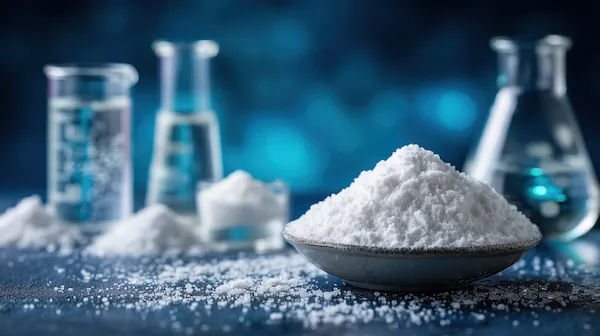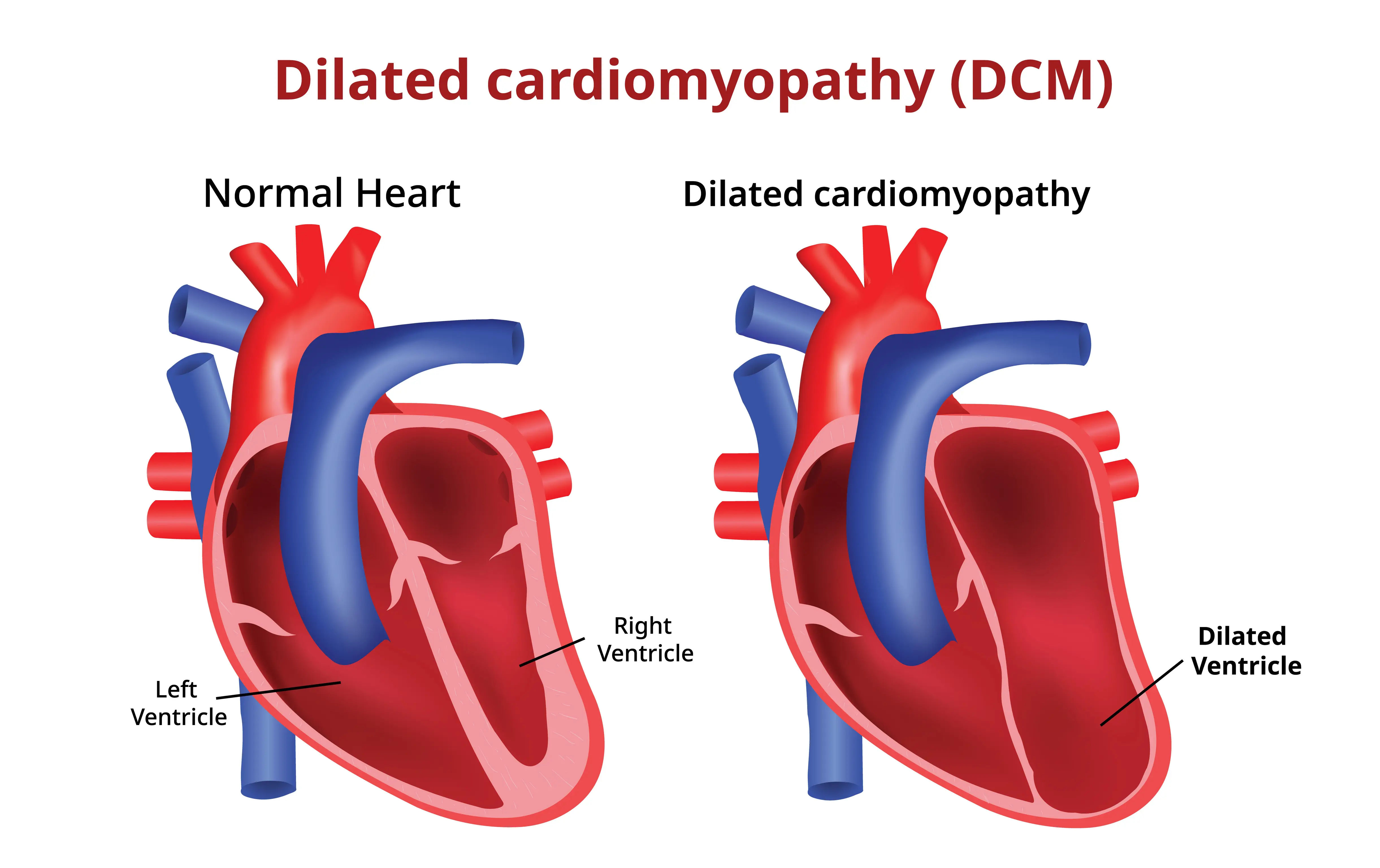Understanding The Gut Microbiome
Explore the gut microbiome's vital role in health. Learn how this complex ecosystem of bacteria, viruses, and fungi impacts digestion, immunity, and mental well-being. Discover what a healthy gut looks like and how to maintain it.


Introduction
Have you ever had a "gut feeling" or felt butterflies in your stomach before a big event? These common phrases hint at a profound scientific truth: your gut is far more than a simple digestive tube. It's the home of your gut microbiome—a vast, complex universe of trillions of bacteria, viruses, and fungi that plays a starring role in your overall health. This intricate ecosystem influences everything from your mood and immune response to your weight and risk of chronic disease. Yet, for most of us, it remains a mystery. This article will demystify your inner ecosystem, explaining what it is, why it's so crucial, and providing a practical, evidence-based action plan to nurture it. Get ready to discover the secret world within you that holds the key to unlocking better health.
What Exactly Is The Gut Microbiome?
More Than Just "Bacteria": The Ecosystem Within
The gut microbiome is the collection of all the microorganisms, their genetic material, and the environment they live in within your gastrointestinal tract. While we often shorthand it to "gut bacteria," it's actually a diverse community that includes bacteria, archaea, fungi, and viruses. Think of it not as a single entity, but as a bustling metropolis, often referred to as a "superorganism," where different species have different jobs, and balance is key to a thriving city. The majority of this community resides in your large intestine, where they feast on the fibers you can't digest yourself.
A Unique Fingerprint: Your Microbiome is Your Own
No two microbiomes are exactly alike. Your personal gut flora is as unique as your fingerprint. It's initially influenced by your mode of birth (vaginal vs. C-section) and early diet (breastmilk vs. formula), and then shaped throughout your life by your diet, environment, stress levels, medication use, and even your pets. This uniqueness is why personalized nutrition, focused on nurturing your specific microbial community, is becoming the future of dietary advice.
Consult Top Specialists
Why Your Gut Microbiome is Your Body's Unsung Hero?
Master Digester: Breaking Down Food and Absorbing Nutrients
Your body's enzymes can't break down all the food you eat. This is where your gut bugs come in. They ferment dietary fibers and resistant starches that you can't digest, converting them into essential nutrients. The most crucial of these are short-chain fatty acids (SCFAs) like butyrate, acetate, and propionate. Butyrate, for instance, is the primary fuel source for the cells lining your colon, helping to maintain a strong gut barrier and reduce inflammation. Without a healthy microbiome, you simply wouldn't get the full nutritional value from your food.
The Immunity Commander: Your First Line of Defense
An estimated 70-80% of your immune cells reside in your gut. Your microbiome is in constant communication with these cells, training them to distinguish between friend and foe. A diverse and balanced microbiome helps educate your immune system to attack harmful pathogens while tolerating harmless food particles and beneficial bacteria. This prevents overreactions that can lead to allergies, autoimmune conditions, and chronic inflammation. It's a sophisticated security system that relies on a well-trained microbial army.
The Gut-Brain Axis: How Your Gut Talks to Your Brain
Perhaps the most fascinating role of the gut microbiome is its communication with the brain via the "gut-brain axis." This is a two-way street involving the vagus nerve, the immune system, and gut hormones. Your gut bacteria produce a plethora of neuroactive compounds, including about 90% of your body's serotonin (a key hormone that stabilizes mood and feelings of well-being) and other neurotransmitters like GABA. This is why an imbalanced gut (dysbiosis) has been strongly linked to conditions like anxiety, depression, and stress. Your mental well-being is deeply connected to the health of your gut.
Signs Your Gut Microbiome Might Be Out of Balance
Digestive Distress: The Most Common Red Flags
The most obvious signs of an unhappy gut are digestive issues. This includes persistent bloating, gas, constipation, diarrhea, and heartburn. These symptoms often indicate that the fermentation process in your gut is off-balance, potentially due to an overgrowth of less-friendly microbes or a lack of diversity. If these symptoms are chronic and affecting your quality of life, it's a clear sign your gut health needs attention. If symptoms persist beyond two weeks, consult a doctor online with Apollo 24|7 for further evaluation.
Beyond the Gut: Unexpected Signs of Dysbiosis
The signals of a troubled microbiome often extend far beyond your digestive tract. Be mindful of these unexpected signs:
- Constant Fatigue: Imbalanced gut flora can impact sleep quality and energy production.
- Sugar Cravings: A diet high in processed sugars and carbs can feed harmful yeast and bacteria, which then demand more, creating a vicious cycle.
- Unintended Weight Changes: Your microbes influence how you store fat, balance blood sugar, and feel hungry.
- Skin Irritations: Conditions like eczema and acne can be linked to gut inflammation and leaky gut.
- Food Intolerances: Difficulty digesting certain foods may stem from poor quality of gut bacteria.
The Enemies and Allies of a Healthy Gut
Modern Life's Assault: Antibiotics, Stress, and Processed Foods
Several factors of modern life can deplete your microbial diversity. While sometimes life-saving, antibiotics are
notoriously non-discriminatory, wiping out both good and bad bacteria. A Western diet high in sugar, refined carbs,
and unhealthy fats while low in fiber literally starves beneficial microbes. Chronic stress elevates cortisol, which can negatively alter the gut environment and weaken the intestinal barrier. Other culprits include a lack of sleep, excessive alcohol, and artificial sweeteners.
How to Nourish Your Gut Bugs: Prebiotics vs. Probiotics?
To help your microbiome thrive, you need to understand its fuel:
- Probiotics: These are the live, beneficial bacteria themselves, found in fermented foods like yogurt (with live cultures), kefir, kimchi, sauerkraut, kombucha, and miso. They can help reintroduce good strains into your gut.
- Prebiotics: This is the food for the good bacteria. They are non-digestible fibers that pass through to your colon where your microbes ferment them. Excellent sources include garlic, onions, leeks, asparagus, bananas, oats, and apples.
A successful strategy involves both: taking in probiotics and feeding them with prebiotics.
Your Action Plan: How to Improve Your Gut Health Starting Today
Feed Them Well: The Top Prebiotic and Probiotic Foods
Diversity is the name of the game. Aim to "eat the rainbow" of plant-based foods to feed a wide variety of microbes.
- Prioritize Plants: Aim for 30+ different plant-based foods per week (fruits, veggies, nuts, seeds, legumes, whole grains). This is the single best thing you can do for microbiome diversity.
- Embrace Fermented Foods: Incorporate one serving of a fermented food daily, like a small bowl of yogurt, a glass of kefir, or a tablespoon of sauerkraut.
- Load Up on Fiber: Make high-fiber foods like beans, lentils, berries, and broccoli a staple at every meal.
Lifestyle Tweaks for a Thriving Microbiome
Food isn't everything. A holistic approach is best:
Manage Stress: Practice mindfulness, meditation, or yoga to lower cortisol levels and create a better environment for your gut bugs.
- Sleep 7-8 Hours: Prioritize quality sleep, as disruption can harm your microbiome.
- Move Your Body: Regular exercise has been shown to increase beneficial microbial species.
- Consider a Test: For a detailed look, some opt for a gut microbiome test. Apollo 24|7 offers a convenient home collection for tests like comprehensive wellness panels that can provide insights into your health status.
Conclusion
Understanding your gut microbiome is the first step toward taking control of your health in a truly foundational way. This internal ecosystem is not a passive bystander but an active participant in your well-being, influencing your digestion, your immunity, and even your thoughts. By shifting your focus to nourishing this microbial community through a diverse, plant-rich diet and a healthy lifestyle, you invest in your long-term vitality. Remember, change doesn't happen overnight. Start with one small step—adding an extra vegetable to your dinner, trying a new fermented food, or taking a walk to de-stress. Listen to your body, and be patient. Your gut—and the trillions of friends living within it—will thank you for years to come.
Consult Top Specialists
Consult Top Specialists

Dr. Rajib Ghose
General Physician/ Internal Medicine Specialist
25 Years • MBBS
East Midnapore
VIVEKANANDA SEBA SADAN, East Midnapore

Dr. Pinaki Mukhopadhyay
General Physician/ Internal Medicine Specialist
33 Years • MBBS
Kolkata
MCR SUPER SPECIALITY POLY CLINIC & PATHOLOGY, Kolkata
(25+ Patients)

Dr Aakash Andgi
General Physician/ Internal Medicine Specialist
9 Years • MBBS MD
Bengaluru
Apollo Clinic, JP nagar, Bengaluru

Dr. Tamal Bhattacharyya
Pulmonology Respiratory Medicine Specialist
8 Years • MBBS, MD (Respiratory Medicine)
Kolkata
MCR SUPER SPECIALITY POLY CLINIC & PATHOLOGY, Kolkata

Dr. Abhishek Ranjan
General Practitioner
4 Years • MBBS
Kolkata
VDC Clinic, Kolkata
Consult Top Specialists

Dr. Rajib Ghose
General Physician/ Internal Medicine Specialist
25 Years • MBBS
East Midnapore
VIVEKANANDA SEBA SADAN, East Midnapore

Dr. Pinaki Mukhopadhyay
General Physician/ Internal Medicine Specialist
33 Years • MBBS
Kolkata
MCR SUPER SPECIALITY POLY CLINIC & PATHOLOGY, Kolkata
(25+ Patients)

Dr Aakash Andgi
General Physician/ Internal Medicine Specialist
9 Years • MBBS MD
Bengaluru
Apollo Clinic, JP nagar, Bengaluru

Dr. Tamal Bhattacharyya
Pulmonology Respiratory Medicine Specialist
8 Years • MBBS, MD (Respiratory Medicine)
Kolkata
MCR SUPER SPECIALITY POLY CLINIC & PATHOLOGY, Kolkata

Dr. Abhishek Ranjan
General Practitioner
4 Years • MBBS
Kolkata
VDC Clinic, Kolkata
More articles from General Medical Consultation
Frequently Asked Questions
1. What are the best probiotic foods for gut health?
Excellent probiotic-rich foods include plain yogurt with live active cultures, kefir (a fermented milk drink), unpasteurized sauerkraut and kimchi, kombucha (a fermented tea), miso, and tempeh. Look for products in the refrigerated section that mention 'live and active cultures.'
2. How long does it take to improve your gut microbiome?
You can start to see minor changes in as little as a few days after altering your diet. However, significantly altering the diversity and stability of your microbiome is a long-term project. Most studies suggest that sustained dietary changes over several weeks to months are needed to create a lasting, healthier gut environment.
3. Can gut health affect anxiety and depression?
Yes, absolutely. Through the gut-brain axis, the microbiome produces neurotransmitters like serotonin and GABA. An imbalance in gut bacteria can promote inflammation and affect the production of these chemicals, which is strongly linked to mood disorders like anxiety and depression.
4. What is leaky gut syndrome?
'Leaky gut,' or increased intestinal permeability, is a condition where the lining of the small intestine becomes damaged. This allows undigested food particles, toxins, and bacteria to 'leak' through the intestines into the bloodstream, potentially triggering inflammation and immune reactions. An unhealthy microbiome is a key contributor to this condition.
5. Are probiotic supplements necessary?
For generally healthy people, you can get all the probiotics you need from food. Supplements can be beneficial in specific situations, like after a course of antibiotics or for certain diagnosed conditions. However, they are not a magic bullet and work best when combined with a high-fiber, prebiotic-rich diet to feed the new bacteria. It's best to choose a reputable brand and, if unsure, speak with a healthcare professional.
.webp)



